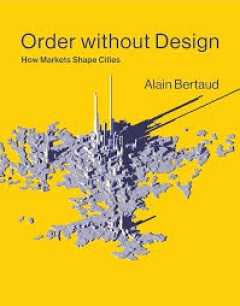Filter by

Sharing cities :a case for truly smart and sustainable cities
The work makes a case for understanding cities as shared spaces and venues for collaboration; and proposes policies and practices to share cities fairly. It argues that with modern technologies the intersection of urban space and cyberspace provides an unrivalled platform for more just, inclusive and environmentally efficient economies and societies rooted in a sharing culture.OCLC-licensed ven…
- Edition
- -
- ISBN/ISSN
- 9780262329705
- Collation
- 1 online resource (x, 445 pages) :illustrations.
- Series Title
- -
- Call Number
- -

Order without design how markets shape cities
"This book emerges from a 55-year career in urban planning, and is illustrated by the author's real-world experience. Without understanding how markets work, urban planners are likely to design infrastructure and regulations that will adversely impact the functioning of cities. By contrast, urban economists review decisions and outcomes after the fact, often publishing their conclusions in spec…
- Edition
- -
- ISBN/ISSN
- 9780262349215
- Collation
- 1 online resource.
- Series Title
- -
- Call Number
- -

The spatial economy :cities, regions, and international trade
Originally published: 1999.The authors show how a common approach that emphasizes the three-way interaction among increasing returns, transportation costs, and the movement of productive factors can be applied to a wide range of issues in urban, regional, and international economics.Since 1990 there has been a renaissance of theoretical and empirical work on the spatial aspects of the economy--…
- Edition
- -
- ISBN/ISSN
- 9780262273329
- Collation
- 1 online resource (xiii, 367 pages) :illustrations
- Series Title
- -
- Call Number
- -
 Computer Science, Information & General Works
Computer Science, Information & General Works  Philosophy & Psychology
Philosophy & Psychology  Religion
Religion  Social Sciences
Social Sciences  Language
Language  Pure Science
Pure Science  Applied Sciences
Applied Sciences  Art & Recreation
Art & Recreation  Literature
Literature  History & Geography
History & Geography